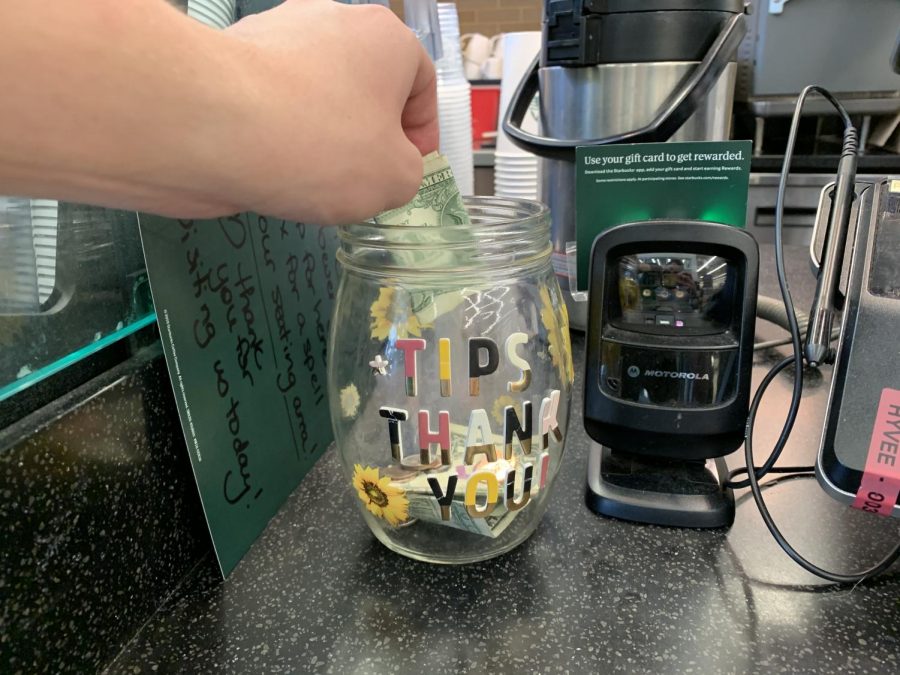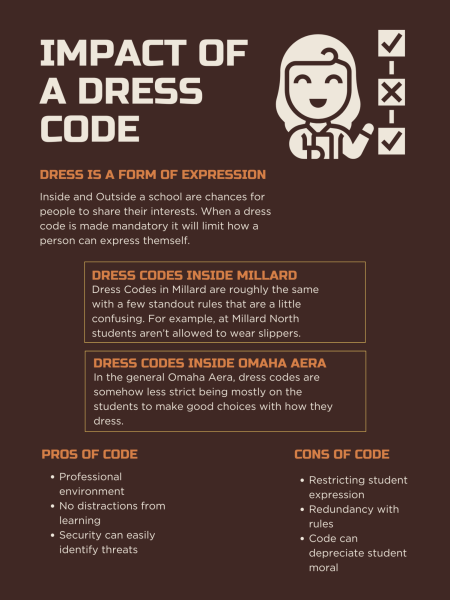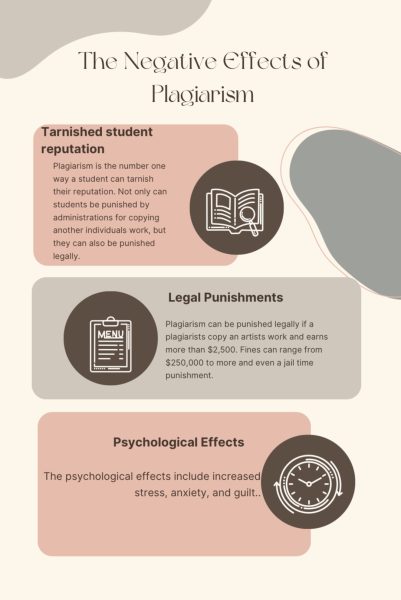To tip or not to tip
The importance of a customer’s generosity
Starbucks workers receive tips from their customers throughout their workday. A customer’s generosity benefits the workers by providing them more wage and appreciation for their hard work.
October 9, 2020
The restaurant industry provides as many as 13.49 million Americans jobs as of May 2019, according to Statista. This industry relies on being convenient and providing fast service to bring in their customers. Whether it’s a Starbucks drink or a three-course meal from a fancy restaurant, servers work to ensure customers a good experience.
Most people can agree that food service workers deserve a liveable wage. The reality is some of these workers don’t receive the wages they deserve. This current system relies on customers’ tips to make up for the money not included in their wages, leading these workers to rely on tips to make up for their wages.
If service workers can accept tips, their normal wage is usually lowered. This means that their pay rate is somewhat under minimum wage. These workers rely on tips to compensate for the money they are missing from their paycheck.
Unfortunately, a survey completed by TD Ameritrade showed that only 82% of Americans tip while 18% of Americans don’t. There are obviously many issues with this. Eighteen percent can make a difference in a server’s life. Not leaving a tip only penalizes these workers for wages they can’t control. The Economic Policy Institutes states “forcing service workers to rely on tips for their wages creates tremendous instability in income flows, making it more difficult to budget or absorb financial shocks.” This proves that the current system we have for these workers only harms them.
Although we can’t fix their overall wage, providing tips for these workers help them out tremendously. The system relies on tips so not playing your part has its consequences.
Refusing to tip is terrible for these workers. Like I mentioned before, it penalizes them. People refusing to tip leads these workers to go home empty-handed on top of their already lowered salaries.
Some people’s excuse for refusing to tip includes the worker not doing an acceptable job or not having enough money to tip. Regardless of the server’s service, it is the customers’ obligation to tip these workers. If the service was straight-up awful, simply tip a low percentage. Even though the worker didn’t fit your standards, they still deserve part of a tip. The unpredictability of their wages is something individuals and customers can’t control, but customers can at least help a little bit by tipping. And if money is an issue while tipping, don’t eat out. The suggestion seems harsh but these workers rely on tips to live on. All the money spent on the products usually goes straight back to the company to purchase more products. Workers only get a small percentage of that plus tips, so tips are necessary for these workers.
On top of that, a study done by Arthur Zuckerman on the website CompareCamp proved that “tipping is surprisingly less connected to the service experience than a sense of obligation among guests.” This research demonstrates how service isn’t a factor or a reason when it comes to not tipping food service workers. This shows how service isn’t a huge factor within tipping. Thus, using their service as an excuse to not tip is not acceptable.
Cornell University’s School of Hotel Administration’s study about American’s tipping habits showed that 40% of people aren’t sure about how much to tip. Customers don’t have to tip an insane amount to help the workers. According to a study done by USAToday, the average American tips around 15-20%. Concerns might arise about the correct amount of money to tip. If this is the case then do a quick google search to help. Apps and websites for these situations can also be found anywhere. They provide an easy way to figure out the correct amount to tip in an easy way. While I am tipping, I look at the bill and move the decimal over once to the left then double the amount. This way I always tip at least 20%. I learned this trick in middle school and it has helped me a lot.
Corporations are the only ones who can fix the flawed system so their wages aren’t unpredictable and rely on empathy from customers, but as of right now, tips are necessary. If every customer does this, then food service workers have nothing to worry about.
All in all, tipping is an obligation between customers. Showing a little bit of compassion towards these hardworking waiters, waitresses, baristas and other foodservice employees is important to their salaries and their lives.

















